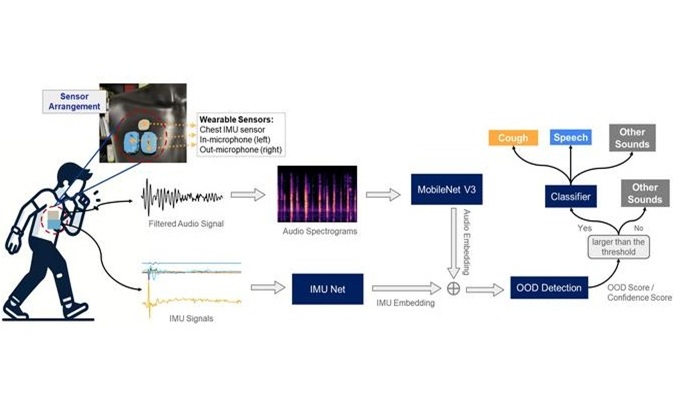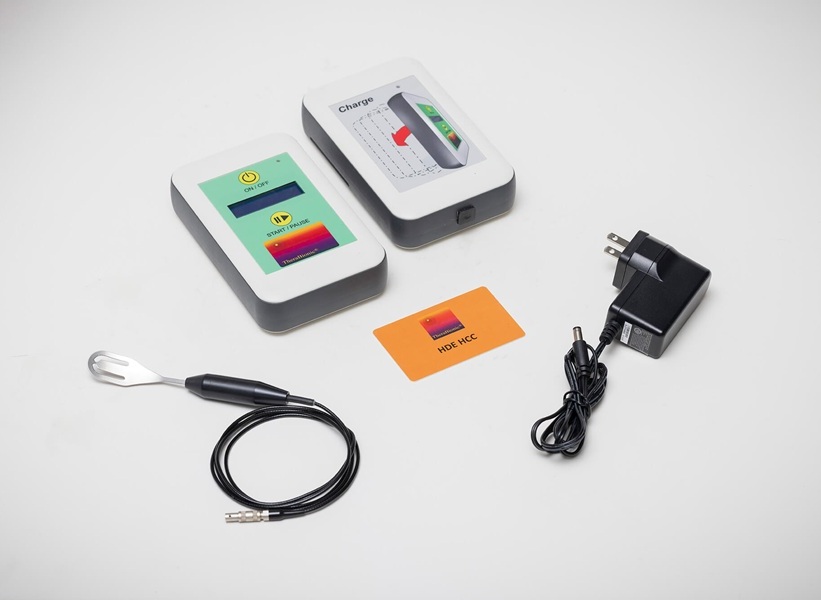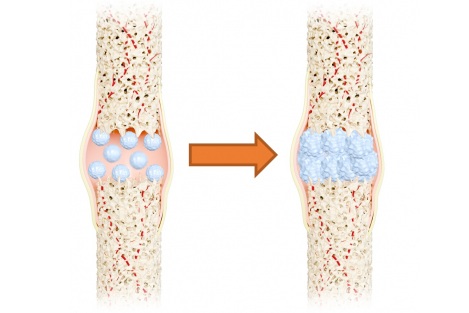AI Algorithm Analyzes Daily Activities in People with Dementia
|
By HospiMedica International staff writers Posted on 29 Jan 2019 |
Artificial intelligence (AI) can be used to remotely monitor people with dementia living at home, helping to identify health problems such as urinary tract infections (UTIs).
Researchers at the University of Surrey (Guildford, United Kingdom) and Surrey and Borders Partnership NHS Foundation Trust (SABP; Leatherhead, United Kingdom) developed the system, which relies on a network of internet enabled devices such as environmental and activity monitoring sensors, and vital body signal monitoring devices. Data streamed from these devices is analyzed using machine-learning solutions, and identified health problems are flagged on a digital dashboard and followed up by a clinical monitoring team.
For the study, the researchers used non-negative matrix factorization (NMF) to find hidden clues of possible UTI cases; they then applied novel machine learning algorithms to identify early UTI symptoms and signs. In addition, they designed an algorithm for detecting changes in activity patterns to identify early symptoms of cognitive decline or health decline, using an isolation forest (iForest) technique to create a holistic view of the daily activity patterns. The study was published on January 19, 2018, in PLOS One.
“Urinary tract infections are one of the most common reasons why people living with dementia go into hospital. We have developed a tool that is able to identify the risk of UTIs so it is then possible to treat them early,” said professor of machine intelligence Payam Barnaghi, PhD, of the University of Surrey’s Centre for Vision, Speech and Signal Processing (CVSSP) unit. “We are confident our algorithm will be a valuable tool for healthcare professionals, allowing them to produce more effective and personalized plans for patients.”
“The Technology Integrated Health Management (TIHM) for dementia study is a collaborative project that has brought together the NHS, academia, and industry to transform support for people with dementia living at home and their carers. Our aim has been to create an Internet of Things led system that uses machine learning to alert our clinicians to potential health problems that we can step in and treat early,” said Professor Helen Rostill, director of innovation and development at SABP. “The system helps to improve the lives of people with dementia and their carers and could also reduce pressure on the NHS.”
Related Links:
University of Surrey
Surrey and Borders Partnership NHS Foundation Trust
Researchers at the University of Surrey (Guildford, United Kingdom) and Surrey and Borders Partnership NHS Foundation Trust (SABP; Leatherhead, United Kingdom) developed the system, which relies on a network of internet enabled devices such as environmental and activity monitoring sensors, and vital body signal monitoring devices. Data streamed from these devices is analyzed using machine-learning solutions, and identified health problems are flagged on a digital dashboard and followed up by a clinical monitoring team.
For the study, the researchers used non-negative matrix factorization (NMF) to find hidden clues of possible UTI cases; they then applied novel machine learning algorithms to identify early UTI symptoms and signs. In addition, they designed an algorithm for detecting changes in activity patterns to identify early symptoms of cognitive decline or health decline, using an isolation forest (iForest) technique to create a holistic view of the daily activity patterns. The study was published on January 19, 2018, in PLOS One.
“Urinary tract infections are one of the most common reasons why people living with dementia go into hospital. We have developed a tool that is able to identify the risk of UTIs so it is then possible to treat them early,” said professor of machine intelligence Payam Barnaghi, PhD, of the University of Surrey’s Centre for Vision, Speech and Signal Processing (CVSSP) unit. “We are confident our algorithm will be a valuable tool for healthcare professionals, allowing them to produce more effective and personalized plans for patients.”
“The Technology Integrated Health Management (TIHM) for dementia study is a collaborative project that has brought together the NHS, academia, and industry to transform support for people with dementia living at home and their carers. Our aim has been to create an Internet of Things led system that uses machine learning to alert our clinicians to potential health problems that we can step in and treat early,” said Professor Helen Rostill, director of innovation and development at SABP. “The system helps to improve the lives of people with dementia and their carers and could also reduce pressure on the NHS.”
Related Links:
University of Surrey
Surrey and Borders Partnership NHS Foundation Trust
Channels
Critical Care
view channel
Origami Robots to Deliver Medicine Less Invasively and More Effectively
Delivering medicine to ulcers or other internal sites often requires invasive procedures that can disrupt surrounding tissues and lengthen recovery times. Traditional magnetic actuators used in soft robotics... Read more
Improved Cough-Detection Technology Aids Health Monitoring
Coughing serves as an important biomarker for tracking a variety of conditions and can help monitor the progress of respiratory diseases or predict when someone’s asthma is being exacerbated.... Read moreSurgical Techniques
view channel
Novel Glue Prevents Complications After Breast Cancer Surgery
Seroma and prolonged lymphorrhea are among the most common complications following axillary lymphadenectomy in breast cancer patients. These postoperative issues can delay recovery and postpone the start... Read more
Breakthrough Brain Implant Enables Safer and More Precise Drug Delivery
Delivering medication directly to specific regions of the brain has long been a major challenge in treating neurological disorders. Current implants and infusion systems typically reach only one or two... Read morePatient Care
view channel
Revolutionary Automatic IV-Line Flushing Device to Enhance Infusion Care
More than 80% of in-hospital patients receive intravenous (IV) therapy. Every dose of IV medicine delivered in a small volume (<250 mL) infusion bag should be followed by subsequent flushing to ensure... Read more
VR Training Tool Combats Contamination of Portable Medical Equipment
Healthcare-associated infections (HAIs) impact one in every 31 patients, cause nearly 100,000 deaths each year, and cost USD 28.4 billion in direct medical expenses. Notably, up to 75% of these infections... Read more
Portable Biosensor Platform to Reduce Hospital-Acquired Infections
Approximately 4 million patients in the European Union acquire healthcare-associated infections (HAIs) or nosocomial infections each year, with around 37,000 deaths directly resulting from these infections,... Read moreFirst-Of-Its-Kind Portable Germicidal Light Technology Disinfects High-Touch Clinical Surfaces in Seconds
Reducing healthcare-acquired infections (HAIs) remains a pressing issue within global healthcare systems. In the United States alone, 1.7 million patients contract HAIs annually, leading to approximately... Read moreBusiness
view channel
Philips and Masimo Partner to Advance Patient Monitoring Measurement Technologies
Royal Philips (Amsterdam, Netherlands) and Masimo (Irvine, California, USA) have renewed their multi-year strategic collaboration, combining Philips’ expertise in patient monitoring with Masimo’s noninvasive... Read more
B. Braun Acquires Digital Microsurgery Company True Digital Surgery
The high-end microsurgery market in neurosurgery, spine, and ENT is undergoing a significant transformation. Traditional analog microscopes are giving way to digital exoscopes, which provide improved visualization,... Read more
CMEF 2025 to Promote Holistic and High-Quality Development of Medical and Health Industry
The 92nd China International Medical Equipment Fair (CMEF 2025) Autumn Exhibition is scheduled to be held from September 26 to 29 at the China Import and Export Fair Complex (Canton Fair Complex) in Guangzhou.... Read more














